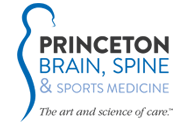My incision site/wound site hurts. What’s going on?
Pain varies from person to person in regards to their incision. There usually is mild pain at the incision area, though it is more common to experience pain at the base of the neck and your shoulder blades due to the disc space distraction. If there is excessive swelling, drainage, or pus from the incision site please get medical attention immediately. If there is fevers, chills, or nausea please receive medical attention immediately.
How should I dress my wound? How long until I can dress and bathe normally again?
Your bandage may be removed the second day after surgery. The steri-strips, staples, and sutures should be left on the incision until you come to your post operative visit so we may exam the wound and remove them for you. This is between one and two weeks after surgery
You may shower the fifth day after surgery if there is no drainage from the incision. Excessive showering may irritate the incision. Please also do not make direct contact with the incision, rather let the water naturally run over it. Do not enter a hot tub, bath tub, pool, ocean or any other body of water until at least three weeks after surgery. Entering any non-sterile body of water may cause infection of the incision site
When can I go about my activities of daily living as normal again? Do I have restrictions?
- Do not lift more than five to ten pounds for the first three weeks after surgery. This can slowly be increased to twenty pounds at around four to six weeks post surgery. Do not lift anything over twenty pounds until after three month post surgery,
- You can drive two weeks after surgery as long as you are not experiencing discomfort when doing nor are taking pain medications. Please note that taking pain medications and driving is discouraged as pain medications can alter your neurological state of wakefulness and consciousness, making it dangerous to drive.
- Please avoid sitting upright on a hard surface or long care rides until two to four weeks after surgery.
- Please avoid any activity that presents the potential of falling or any physical contact (ex: sports, playing with children) until given permission by your neurosurgical provider.
- Please begin exercising in a safe manner by walking as soon as able after surgery. Walking is a great way to prevent blood clots, to increase muscle strength, and to better your cardiovascular health.
- If you are scheduled for dental prophylaxis, it may be best to have antibiotic prophylaxis at least three months after surgery. If able, please schedule your dental appointment for 3+ months after surgery. You may refer to your primary care physician for the proper antibiotic medication.
